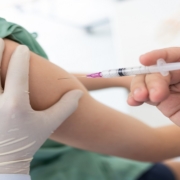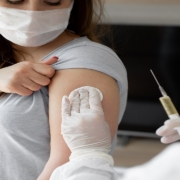No Consult Fee Travel Clinic-Understanding Tetanus and Diphtheria
What is Tetanus Disease?
Tetanus is a serious bacterial disease that affects the nervous system and can cause muscle stiffness and spasms, particularly in the jaw and neck muscles. It is caused by the bacteria Clostridium tetani, which often enters the body through a deep wound or cut. Tetanus can be prevented through vaccination including the diphtheria tetanus vaccine.
What is Diphtheria Disease?
Diphtheria is a serious bacterial infection that affects the nose and throat and can spread to other parts of the body. It can cause a thick gray or white coating on the tonsils, throat, or nose, and can lead to breathing difficulties, heart problems, and nerve damage. Diphtheria can be prevented through vaccinations such as the diphtheria and tetanus vaccine.
The Symptoms of Tetanus Disease Can Vary, but May Include:
The symptoms of tetanus include:
- Stiffness in the jaw muscles (lockjaw)
- Stiffness of the neck, arms, legs, and stomach muscles
- Painful muscle spasms and contractions
- Difficulty swallowing
- High fever
- Sweating
- Rapid or irregular heartbeat
It’s important to note that symptoms can develop anywhere from a few days to several weeks after exposure to the bacteria that cause tetanus. In severe cases, tetanus can lead to respiratory failure and death.
The Symptoms of Diphtheria Can Vary, but May Include:
- Sore throat
- Mild fever
- Swollen glands in the neck
- Weakness and fatigue
- A thick, gray or white coating on the tonsils, throat, or nose
- Difficulty breathing or swallowing
- A low, hoarse voice
- Nausea and vomiting
In severe cases, diphtheria can lead to heart and nerve problems, and can even be life-threatening. It is important to seek medical attention if you suspect that you or someone you know may have diphtheria.
What Countries Are at High Risk for Getting Tetanus Disease
According to the Centers for Disease Control and Prevention (CDC), there is no specific country that is considered to be at higher risk for tetanus. Tetanus can occur anywhere in the world and can affect anyone who has not been vaccinated or who has not received a booster shot in the past 10 years. Tetanus is most commonly found in areas with poor access to vaccines and medical care. However, it is important to remember that even in countries with high vaccination rates, there is always a risk of exposure to the bacteria that cause tetanus, particularly for individuals who are not up-to-date with their vaccinations.
What Countries Are at High Risk for Getting Diphtheria
According to the Centers for Disease Control and Prevention (CDC), there is no specific country that is considered to be at higher risk for diphtheria. However, diphtheria is more common in countries with low vaccination rates or poor access to medical care. In recent years, there have been outbreaks of diphtheria reported in various countries, including some in Asia, Africa, and the former Soviet republics.
It is important to note that diphtheria can occur anywhere in the world and can affect anyone who has not been vaccinated or who has not received a booster shot in the past 10 years. To reduce the risk of getting diphtheria, the CDC recommends that people receive the diphtheria tetanus vaccine as part of a routine immunization schedule.
How to Prevent Tetanus and Diphtheria
The best way to prevent tetanus and diphtheria is through vaccination. The CDC recommends that people receive a series of vaccines, called the DTaP vaccine for children and the Tdap vaccine for adolescents and adults, which protect against diphtheria, tetanus, and pertussis (whooping cough). The diphtheria tetanus vaccination can be done at the Travel Vaccine Clinic.
In addition to vaccination, it is important to follow good wound care practices, such as cleaning cuts and wounds thoroughly and promptly, to reduce the risk of exposure to the bacteria that cause tetanus.
People should also receive a booster shot every 10 years to maintain protection against tetanus and diphtheria. If you have not been vaccinated or have not received a booster shot in the past 10 years, it is important to talk to your healthcare provider to determine if you need to receive the vaccine.
What Should You Do to Prevent Getting Tetanus and Diphtheria During Your Travel
Travelers should take the following steps to prevent getting tetanus and diphtheria during their travel:
- The Travel Vaccine Clinic recommends getting vaccinated: Make sure that you are up-to-date with your tetanus and diphtheria vaccinations. This includes getting a Tdap booster shot every 10 years.
- Follow good wound care practices: Clean cuts and wounds thoroughly and promptly, especially if you have been exposed to dirty or contaminated environments.
- Be aware of the risks: If you are traveling to areas with poor access to medical care or low vaccination rates, be aware of the increased risk of exposure to the bacteria that cause tetanus and diphtheria.
- Seek medical attention: If you experience any symptoms of tetanus or diphtheria, seek medical attention immediately. Early treatment is important in reducing the risk of serious complications.
- Keep your immunization records: Keep a copy of your immunization records with you when you come to the travel vaccine clinic for your travel health consultation. Also, travel with your vaccinations record in case you need to provide proof of vaccination during your trip.
By following these steps, you can reduce your risk of getting tetanus and diphtheria during your travel. However, it is always a good idea to talk to our travel health providers at any of the Travel Vaccine Clinics across the GTA. Our travel health providers will recommend the vaccinations you need based on your specific travel itinerary and health status.
Say yes to vaccines!
Vaccines prevent diseases and save lives!
Book your appointment now
Travelvaccineclinic.fullslate.com
Or call 416-461-2419








Leave a Reply
Want to join the discussion?Feel free to contribute!